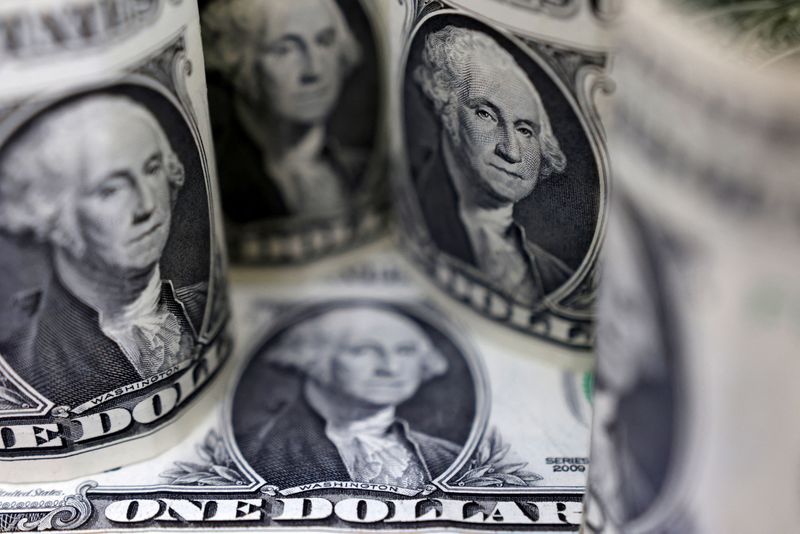By Yasin Ebrahim
Investing.com — The U.S. dollar rebounded from a one-year low as bets on a May rate hike jumped after Federal Reserve officials signaled that there weren’t ready to hoist the white flag on further rate hikes as inflation still remains too hot.
The , which measures the greenback against a trade-weighted basket of six major currencies, rose 0.56% after falling intraday to 100.47, its lowest level since April.
Fed Governor Christopher Waller on Friday called for further rate hikes, saying that the job on inflation was still “not done,” as inflation remains “far too high.”
“In reaction to his speech, market pricing of the rates path pushed the probability of a 25bp hike at the May meeting to all but certain and lifted the probability of a June hike from negligible to about 15%,” Morgan Stanley said in a note.
Bets on a 25% rate hike at the Fed’s May meeting jumped to 84% from 65% last week, Investing.com’s showed.
The hawkish remarks arrived just days after data showed that headline inflation fell more than expected, but core inflation, which strips out volatile food and energy prices and is more closely watched by the Fed, remained sticky.
“I interpret these data as indicating that we haven’t made much progress on our inflation goal, which leaves me at about the same place on the economic outlook that I was at the last FOMC meeting, and on the same path for monetary policy,” Waller added.
In recent weeks, investor focus on the pace of tightening credit conditions has increased amid expectations that a reduction in lending will rein in economic growth, supporting the Fed in its fight against inflation.
But financial conditions haven’t significantly tightened, Waller said, adding that a strong and tight labor market as well as above-target inflation means that “monetary policy needs to be tightened further.”
While bets on another rate hike jumped, investors are still holding onto expectations that the Fed will be forced cut rates later this year.
“Pricing of cuts later this year remains sticky, with the expected December 2023 level of the federal funds rate little changed over the past two weeks,” Morgan Stanley added.
Read the full article here




